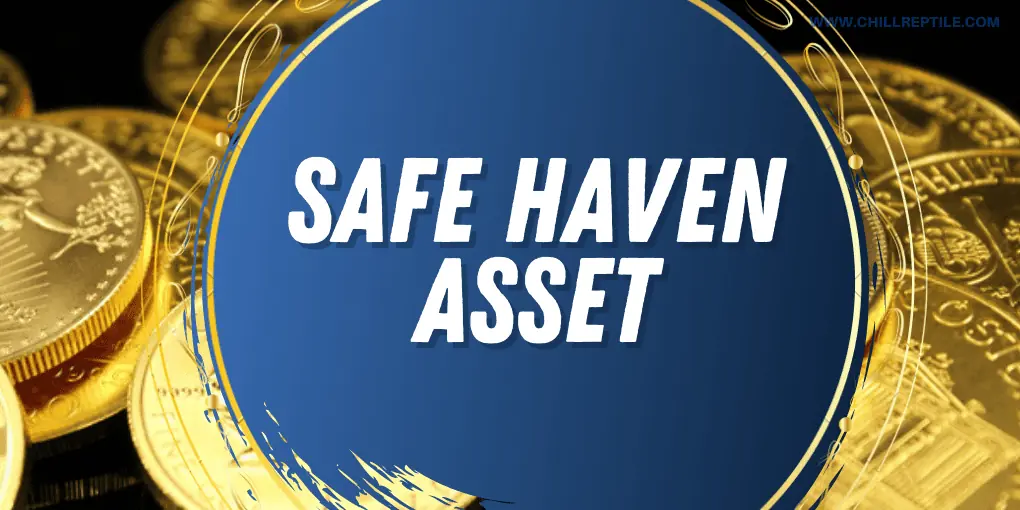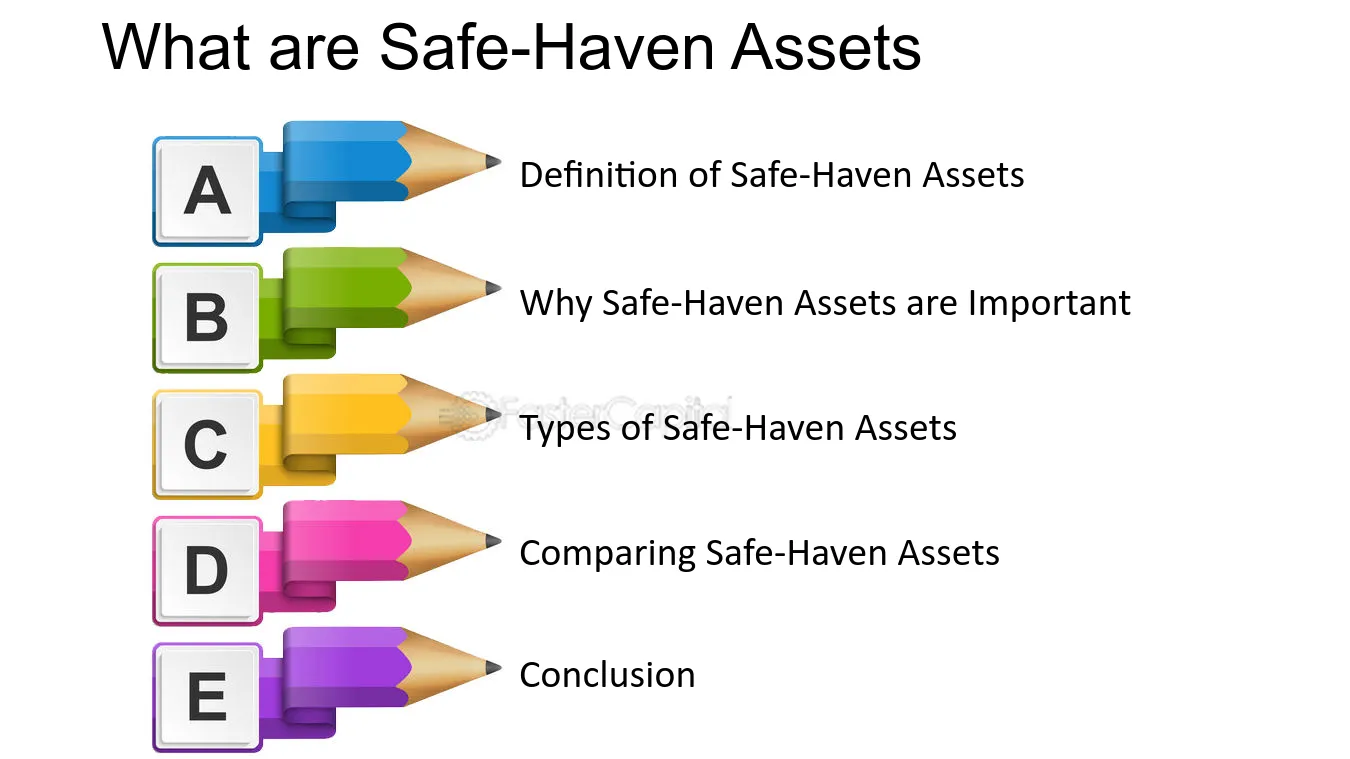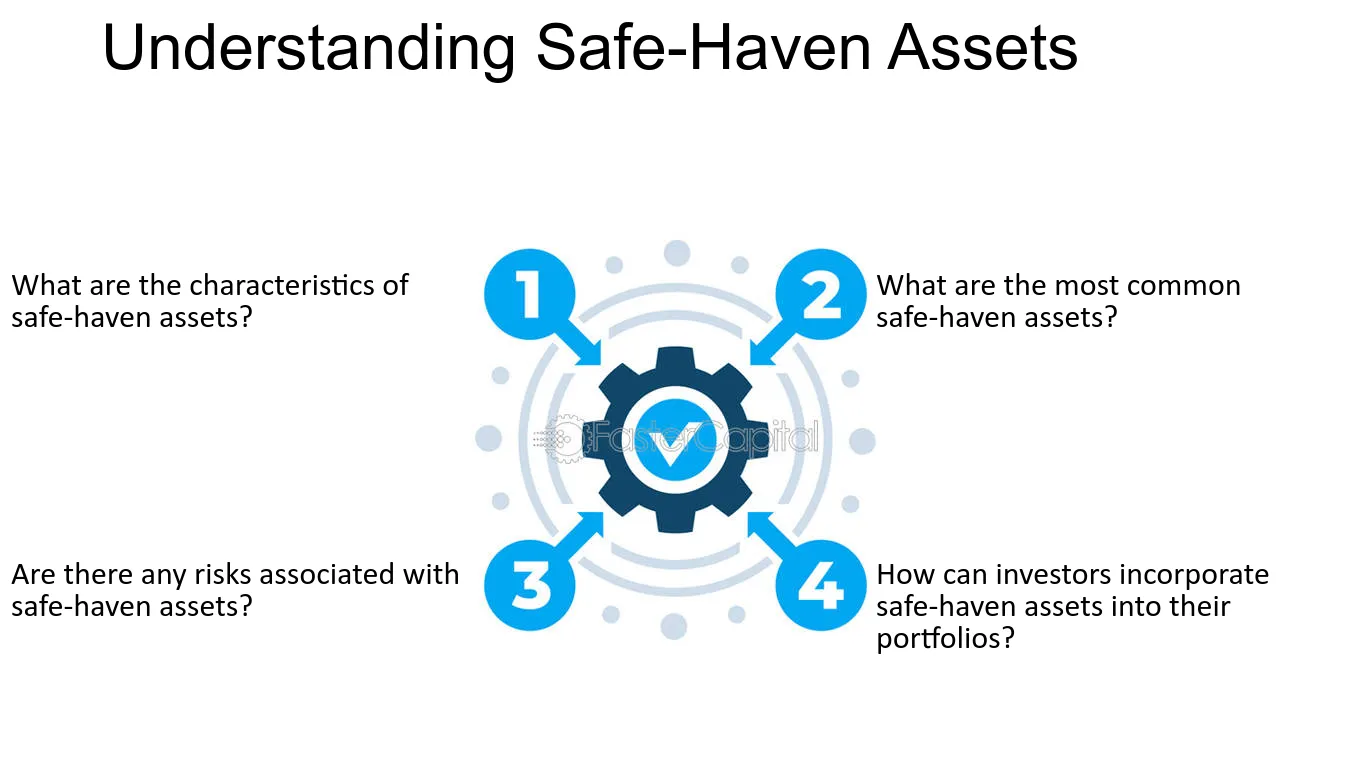Safe-Haven Assets Unveiled: Securing Your Wealth When Turmoil Hits
We all face times when the economic sky seems to fall. Stocks may dive, and panic can hit markets hard. That’s when Safe-Haven Assets in Times of Crisis come into play, a fortress for your hard-earned wealth. Imagine assets that stand strong when chaos rages. Gold and other precious metals often shine brightest when other investments tarnish. Bonds and TIPS? They’re not just paper; they’re promises that can protect your future. Don’t overlook currencies like Swiss Francs and Japanese Yen, which can weather financial storms. And let’s not forget the solid ground of real estate and land, assets that can offer shelter when financial winds blow cold. Join me, and let’s walk through what makes these assets true protectors of your prosperity.
Understanding the Role of Gold and Precious Metals in Economic Instability
The Historical Significance of Gold in Wealth Preservation
Why has gold always been key to saving wealth? Gold is hard to break, does not rust, and shines bright. This makes it special and people have loved it for a long time. Look back into history and you’ll find gold as money, in art, and even in tombs. Kings and queens hoarded it. Gold held strong when paper money failed. It survived wars and market crashes. Its value tends to stand tall when times get tough.
Think of gold as a quiet guard for your cash. When prices rise and your dollar buys less, gold can buy more. It’s like a shield in battle, waiting to protect you. This is why gold preserves wealth. If a crisis hits, gold’s worth often goes up as others drop. It’s a safety net you can fall back on.
Precious Metals as a Form of Insurance Against Crises
What makes precious metals act like insurance? They’re scarce, desired, and keep their worth well. Silver, like gold, shines as a shield for your money. Its value has stood the test of time. In a mess, when stocks may lose, silver can win, adding strength to your savings.
Diversifying with silver means you’re not just stuck with one kind of investment. It’s like not putting all your eggs in one basket. If one breaks, you’ve got others safe. Silver adds variety to your stash, mixing with stocks, bonds, and cash. It cuts the risk of losing it all. People seek precious metals when they fear other investments might fail. These metals often keep their value better than other things do.
Precious metals offer an umbrella when the economy pours rain. They are laid back, not racing up and down like stocks can. This calm nature is why they are seen as a safe place to be. They don’t lose their cool when markets do a tumble. They shine bright, even when the future looks dark.
In hard times, owning precious metals means having a solid thing to hold. They’re not just numbers on a screen. You can touch and feel their weight. This tangibility gives comfort when other assets can just vanish. It’s as close to real money as you can get, ready to be traded when needed.
Using precious metals as insurance is a way of betting for peace, against stormy times. They offer a backup, a plan B. It’s smart to have a slice of your wealth tied to these steady players. They provide balance. Remember, in times of trouble, folks rush to what has proved trustworthy. Gold, silver, and others have passed that test many times.
In summary, gold and its fellow precious metals serve as stalwart defenses amid economic upheaval. Their historical and enduring appeal gives them clout as crisis-resistant assets. For anyone looking to safeguard retirement funds or simply ensure long-term wealth preservation, a foray into the market of these shiny protectors might be just the answer. Investing in them is planting a flag of safety, declaring your readiness for whatever financial storms may come.
The Significance of Government Bonds and TIPS During Market Downturns
Diversifying with Treasury Inflation-Protected Securities (TIPS)
When the market gets tough, you don’t want to lose sleep over your cash. What’s a smart move? Treasury Inflation-Protected Securities, or TIPS. These are like a shield for your money against the rising cost of living. They grow with inflation, so your dollars keep their strength. It’s like having a boat that rises with the tide. With TIPS, you can stop worrying when prices go up.
But how exactly do TIPS work? The government pays you twice on these. The rate is set, plus they add more cash as prices rise. If inflation hits, you get more back. So, it’s a win-win. You get paid and keep your cash from losing power. It’s a strong move for keeping your wealth safe long-term.
The Stability of Government Bonds in Times of Financial Uncertainty
Now, let’s talk government bonds. When stocks take a dive, these bonds often stand firm. They’re seen as super safe. Why? They have the full support of the U.S. government. It’s like a promise from a strong friend to have your back.
People flock to government bonds in scary times. They’re called risk-off assets. That means when danger comes, these are where you turn. They’re like a cozy fort in the face of a storm. The reason? The U.S. is a powerhouse, and it has never missed a payment on its bonds. So, your investment is about as safe as it gets.
Bonds give you steady, regular cash. And in downturns, they can shine brighter than even gold. Yes, gold is great for storing value. But bonds pay you through the tough times. They’re a key part of defensive investing strategies. Plus, they’re liquid, easy to buy and sell fast. It’s like having an escape route when things get rough.
To sum it up, TIPS and government bonds are a must for anyone wanting to keep their wealth safe. They hedge against inflation and guard your cash during downturns. Think of them as your financial safety net. Ready to dive deeper? These assets could be the life vest your portfolio needs when waves hit.
The Currency Haven: Swiss Francs and Japanese Yen
Exploring the Stability of the Swiss Franc During Economic Unrest
Money gets shaky when times get tough. Swiss Francs, though, stay solid. Why is the Swiss Franc stable? It’s a mix of strong laws, a firm banking system, and a good government. These make it a go-to for keeping money safe.
Swiss Francs shine when other cash falls. They are stable because Switzerland has no big debt. They stay out of other countries’ fights. They guard your cash like a fortress. This means even when stocks or other money dips, Swiss Francs often do well.
Lots of folks use the Swiss Franc to shield their wealth. It works like an anchor, keeping cash steady. It’s a smart move to add some to your cash mix. This can keep your money safe when the world’s money dance gets wild.
Why the Japanese Yen is Considered a Safe Bet in Crises
When storms hit, the Japanese Yen stands strong. What makes the Yen a good pick in a mess? Its country has lots of cash, and its banks are rock-solid. This gives it power when fear sends markets down.
The Yen comes from Japan, a place with big money know-how. They make cool stuff and sell it all over. When markets fall, people hunt for calm. They find it in the Yen. It’s like a strong roof in a windstorm. That’s why it’s seen as a good choice when things look bleak.
A bonus: owning Yen can spread out your risks. It swings different than some other cash. This can help steady a wobbly wallet. Let’s say you have cash in lots of places. Some may go down, but Yen might stay level. This can give you balance.
So, when the seas of the market are rough, take a look at the Yen. It might just be the life jacket your money needs. It’s a tidy plan to level out the bumps and keep your cash sailing smooth.
Real Estate and Land Investments: A Shield in the Storm
Assessing the Resilience of the Real Estate Market in Economic Turbulence
When the market shakes, many ask, “Does real estate stay strong?” Yes, it often does. Brick-and-mortar assets usually hold their ground when stocks drop. People always need places to live and work. This keeps demand for real estate up, even when other investments tumble. It’s a part of a smart strategy called defensive investing. This means choosing assets that won’t fall hard during bad times. During the 2008 crash, while stocks plunged, many property values did not dive as deep.
But remember, not all real estate is equal. Some types, like luxury condos, can get hit hard. Others, such as rental homes, might not feel the crisis as much. This is because people may choose to rent instead of buying in tough times. For those saving for later, like retirement, it’s wise to think about where and what you buy. Look for lands or homes in places people always want to be in. Good schools and jobs nearby can mean these spots stay in demand.
Land Investment as a Secure Foundation for Long-Term Wealth Preservation
Why call land secure for saving wealth? It’s simple. They’re not making more of it. It’s a limited resource. That’s why it often keeps its value or even goes up, when other things fail. Not just any land will do, though. You have to pick the right spot. Think about fertile ground for farming or areas near growing cities. These picks are likely to become more wanted over time.
Owning land is about patience. It’s not a quick win but a long run deal. You often see gains after many years. It’s less about getting rich fast and more about keeping wealth safe. This ties into wealth preservation, which is key for a worry-free future, especially after you stop working. Even gold, often seen as the top safe asset, can’t promise the unique lasting value land has.
In a nutshell, real estate and land are trustworthy havens when the economy goes wild. They’re like a calm port in a storm. You won’t get rich overnight. But chances are, you won’t lose it all when trouble comes knocking. This is crucial for protecting what you have. It also means you have a chance to pass on something solid to the next generation.
These choices, real estate and land, are rock-solid ways to keep your savings safe. The goal isn’t just to survive a crisis. It’s to come out the other end, wealth intact, or even ahead. So when the sky looks dark over the stock market, remember the steady land beneath your feet. Just as a sturdy home stands firm in high winds, the right pieces of earth can too.
We looked at how gold and other precious metals shine during tough times, keeping wealth safe when money loses value. Don’t forget, these metals are like insurance for your pocket when crisis knocks. Then, we talked about government bonds and TIPS. Remember, they’re your steady friends that help keep your cash from crashing when markets dip.
Swiss francs and Japanese yen? We saw how these currencies stand strong when other money may wobble. And don’t overlook real estate and land investments. These are true champs at protecting what you’ve worked hard for, even when economic storms hit.
I hope you now see that smart choices can shield your savings. Gold glints, bonds steady the ship, choice currencies sail smooth, and land holds firm. Keep these tools in mind to navigate the rough waters of economics. They can be your lifeline to holding on to what you have. Stay wise and keep learning; your future could be brighter for it.
Q&A :
Certainly! Below, you’ll find a set of SEO-optimized FAQs designed to answer common queries around the topic of “Safe-Haven Assets in Times of Crisis.”
What are safe-haven assets and why are they important during a crisis?
Safe-haven assets are investments that are expected to retain or increase in value during times of market turbulence or economic downturns. They are important because they provide investors with a measure of protection against financial losses, helping to preserve capital when riskier assets such as stocks and bonds may be falling in value.
How do precious metals like gold fit into a safe-haven asset strategy?
Precious metals, particularly gold, are considered one of the classic safe-haven assets. In times of crisis, investors often flock to gold as a store of value and a hedge against inflation or currency devaluation. As part of a diversified portfolio, gold can play a key role in mitigating risk during economic uncertainty.
Are government bonds considered safe-haven assets?
Yes, government bonds, especially those issued by stable governments such as U.S. Treasury bonds, are typically seen as safe-haven assets. Investors consider them low-risk because they are backed by the government, making them a popular choice during volatile market periods when preserving capital becomes more important than high returns.
Can cryptocurrencies be considered safe-haven assets?
The role of cryptocurrencies as safe-haven assets is a subject of debate among investors. While some view cryptocurrencies like Bitcoin as ‘digital gold’ due to their limited supply and independence from traditional financial systems, their high volatility can undermine their safe-haven status. As such, they may not always be reliable safe-havens in times of crisis.
What factors should be considered when selecting safe-haven assets during a crisis?
When selecting safe-haven assets during a crisis, investors should consider several factors, including the asset’s liquidity, historical performance during downturns, correlation with other investments, and overall stability of the investment. It is also crucial to evaluate how these assets fit within the context of an individual’s investment goals and risk tolerance.
These FAQs are designed to respond directly to popular queries and are optimized for search engines by focusing on long-tail keywords and providing clear, concise answers to common questions on the topic.



